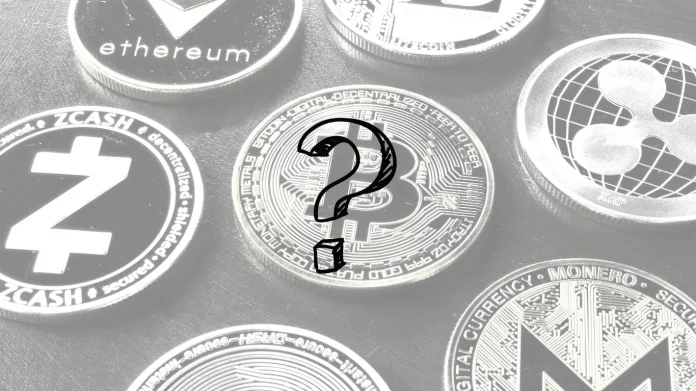Cryptocurrencies are merely a medium of exchange and are a means of carrying out a transaction, digitally. Cryptocurrencies are most often decentralized and most cannot be regulated by governments.
Some governments have taken steps to try and regulate cryptocurrency, like in South Africa crypto traders are taxed on their crypto profits. It is important to note that not all cryptocurrencies are decentralized.
Cryptocurrency Definition
Cryptocurrency, also known simply as Crypto, can be defined as a virtual or digital currency which is secured through cryptography and is usually based on blockchain technology.
The blockchain is a public or private ledger of all transactions that have ever occurred on a cryptocurrency’s peer-to-peer network. It is like one long record book, which dates back to the first few transactions which occurred for whichever particular cryptocurrency.
Origin Of Crypto
The first known cryptocurrency was invented by David Chaum. He invented the first form of Internet money known as “DigiCash”. It was an extension to the popular algorithm RSA. His project ended up in bankruptcy in 1998.
Bitcoin (BTC) is the world’s first decentralized cryptocurrency and the largest by market cap. Bitcoin was first launched in 2009, and by 2011, many new types of cryptocurrencies have emerged.
Types of Crypto
Currencies: Cryptocurrencies like Bitcoin (BTC) allow us to transact with one another globally and almost instantaneously without any middle men, while also serving as an investment which may increase in value as demand increases.
Utility Tokens: Utility tokens are tokens that refer to tokens which provide users with a service or serves some use case within a specific ecosystem. For example, voting on a network, or funding an ICO (initial coin offering).
Security Tokens: Security tokens are contracts which represent the legal ownership of a physical or digital asset that has been verified within the blockchain. For example, real estate, a car, or stocks.
Stablecoins: Stablecoins refer to cryptocurrencies of which their value is pegged, or tied to that another currency or commodity, like United States Dollars (USD) or gold. The most popular stable coins are Tether (USDT), Dai (DAI), Binance USD (BUSD), USD Coin (USDC), and TrueUSD (TUSD)
DeFi: Short for Decentralized Finance, refers to financial technology and tokens which are based on secure distributed ledgers similar to those used by cryptocurrencies most commonly enable holders of these tokens to perform more traditional roles of finance – such as banking, loans, and even asset trading.
How To Buy and Sell Crypto
The different types of cryptocurrencies can be purchased through exchanges where they are listed with Fiat currency, such as South African Rands (ZAR) or earned through mining cryptocurrencies like Bitcoin (BTC). Crypto mining can be described as the method by which cryptocurrencies are generated.
For example, before one can buy a Bitcoin, it first has to be mined. Miners all around the world use their computers and sophisticated graphics cards to mine Bitcoin. Mining verifies transactions, then rewarding miners with Bitcoin which can then enter the crypto marketplace.
Other than buying cryptocurrencies on exchanges, it can also be purchased peer-to-peer and if you already have one type of crypto – you can swap it for another with a willing party.
To sell your crypto, list your available balance on a peer-to-peer network or transfer your crypto to a credible exchange and sell your crypto on the open market.
Things You Can Do With Crypto
HODL: HODL, the popularized term in the crypto world refers to Hold On for Deal Life, refers to buying cryptocurrency and waiting till it goes to the Moon, where moon refers to skyrocketing crypto prices and huge profits.
Investing: Use crypto as an investment vehicle by investing in products and services, buy digital art as NFTs (non fungible tokens) or open a crypto savings wallet where you can earn interest on your crypto holdings.
Pay for things: Other than using crypto solely in the crypto ecosystem in crypto gambling or crypto gaming for example, crypto is also accepted by some retailers online and can be used to purchase products and services both online and offline.
How To Store Your Crypto
There are a couple ways to store your crypto, firstly with a crypto exchange. Make sure you trust the exchange and are sure of it’s security measures. Crypto exchange hacks is probably the largest contributor to people losing their crypto assets.
Crypto can also be stored on hard wallets, which store’s your private key’s in a secure hardware device. Additionally paper wallets can also be created, but be sure to save your private key, as without it you will not be able to access your cryptocurrency.
For those of you who plan own owning large portfolio of cryptocurrency – a crypto custodian, which acts as a bank where one can store, manage and protect your crypto assets is your best choice.
Another popular choice for storing cryptocurrency is browser wallets, like MetaMask, which is a popular browser extension that equips you with a key vault, secure login, token wallet, and even a token exchange.
Lastly, crypto can be stored in mobile wallets, via mobile apps too.
If you’re new to crypto, start of with an online wallet with low fees to get familiar with how they work. If you’re going for security, a hardware wallet is a must have – just don’t lose it.
Future of Cryptocurrencies
The world of crypto is fast paced, filled with highly skilled and talented individuals within the tech space who build projects and ecosystems worth billions of dollars within a matter of months.
It has been more than a decade since the introduction of Bitcoin (BTC) and new cryptocurrencies, protocols, and solutions to real-world problems are still being introduced.
Many countries’ governments are experimenting with blockchain and a few have even piloted their own digital currencies. Some countries which have launched their own Central Bank Digital Currencies (CBDCs) include Ukraine, Iran,. India, The Bahamas, Nigeria, and China.
While the crypto market is volatile, is is an exciting community to be apart of and we are still only at the beginning of crypto becoming an everyday norm in many people’s lives.

